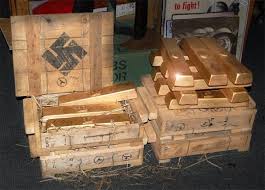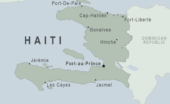Re Ian Bremmer 'Could third-party candidates upend the 2024 US election?' 3 April The current political movement in the USA…
Wednesday Night #857 – Nazi Gold
Written by Diana Thebaud Nicholson // August 5, 1998 // Herb Bercovitz, Reports // Comments Off on Wednesday Night #857 – Nazi Gold
Invaluable References are available from PBS Frontline Nazi Gold
 The evening began with a viewing of the magnificent recently completed (and as yet un-named) marble sculpture by our multi-talented Herbert Bercovitz. A number of the admiring guests wondered why Herb has not had a public showing of his work and encouraged him to do so. David and Diana expressed their appreciation of the honor Herb has done Wednesday Night by allowing them to host the official unveiling of this superb piece.
The evening began with a viewing of the magnificent recently completed (and as yet un-named) marble sculpture by our multi-talented Herbert Bercovitz. A number of the admiring guests wondered why Herb has not had a public showing of his work and encouraged him to do so. David and Diana expressed their appreciation of the honor Herb has done Wednesday Night by allowing them to host the official unveiling of this superb piece.
The mix of guests favored the discussion of more serious topics than is normally the case on a warm summer evening. In the presence of economists and market analysts, Canadian politicians, World Court specialists, foreign diplomats, Swiss bankers and holocaust survivors, discussion covered the behavior of the Swiss government and banks during and since the end of World War II, the spinoff of the downward slide of the Canadian dollar and Canadian diplomacy, internal as well as external.
Frank Kinnelly, the heralded guest of the evening has been closely involved with the research and drafting of the U.S. State Department reports on Nazi Gold. According to Frank, “Whereas the first report centered on Switzerland, the second report, which was released about two months ago, covered the other neutrals (and their complicity in selling crucial war materiel to the Nazis) … (Stu Eizenstat’s), controversial forward to the first report, in which he claimed that Swiss actions served to prolong the war, is not supported by the report itself. More recently, he has been trying to rein in state authorities … who are seeking to boycott Swiss banks.
“The second report with its focus on the other neutrals was, I think, part of this effort. But a myth has been born. A lawyer representing a group of Jewish claimants recently charged that Swiss support for the Germans prolonged the war by two years. As a consequence of all these attacks, it looks like the proposal in Switzerland to set up a major fund for refugee relief by revaluing the official gold reserves has been shelved.”
The Swiss and Swiss Banks and the Holocaust Survivors and their Descendants:
1. Unlike most countries including Canada, which require that the contents of accounts be deposited with the central bank after a predetermined period of dormancy, the Swiss government for centuries, has permitted banks to retain deposits indefinitely, to the continuing benefit of the individual bank. This legislation thus has never motivated Swiss banks to actively seek out legal heirs.
In order to claim the account of an ancestor, a death certificate has always been required. This seemed like a reasonable requirement until the pre and post World War II period, at which time:
* Millions of victims among them Jews and Gypsies living in Germany and German occupied and allied countries, were executed in concentration camp gas chambers and cremated without any death certificate having been issued.
* Many people disappeared without trace during successive advances of both German and Allied forces during the war.
Swiss banks have always accepted deposits without questioning their origin, contrary to practice in Canada and many other countries. This has made Switzerland a haven for assets of questionable origin, including those of some Canadians allegedly attempting to evade taxes on capital gains derived from real estate or other transactions.
2. The 1939 to 1945 period.
Like other such neutral countries as Portugal and Turkey, the government of Switzerland co-operated actively with Nazi Germany. It is unclear as to whether this was due to avarice or fear of being invaded by the very large and powerful army that surrounded the country, but in 1942 the Swiss president in a major statement, declared that his country had to make accommodations with Germany. Interestingly, the general population preferred the option proposed by General Guisan to withdraw its troops form the frontier to the defensible mountain passes crucial to both Germany and Italy, leaving the major cities undefended. The view of the President prevailed.
3. The post-war period.
There has been neither precedent, legislation, nor motivation for the Swiss banks to actively seek out survivors or living descendants of victims of Naziism or of the war. In fact, as time goes on there will inevitably be fewer potential claimants alive leading to the ultimate resolution of the problem.
A fund was proposed by the Swiss government, but opposition was so intense that it would have had to go to referendum. Compensation has been offered equivalent to approximately ten times the amount of the money originally deposited, but has been refused by Jewish groups as being insufficient. A British-American conference was held in London to study the issue. Another will be held this autumn in Washington.
Meanwhile, one skeptic suggested that the Swiss banks might just bide their time until January of 2000 at which time they could declare that due to the Millennium Bug, all account records have been destroyed. [Martin Barnes has one of the best articles on Y2k in his August Bank Credit Analyst forecast.]
Despite claims and disclaimers, a lost generation is dying off, some affluent, others in desperate need of a resolution to this problem.
The Market and The Sliding Dollar:
David introduced the topic with a tightly spliced video containing numerous (and often conflicting) facts and opinions on the market’s recent performance. Discussants of the apparent poor recent performance of the Toronto Stock Exchange underlined that unlike the Dow, The TSE index is heavily weighted by resource companies. The value index of both is identical.
It was suggested that markets have reached panic exhaustion which frequently attracts buyers of securities of good value. The TSE will probably meander down until the end of August or mid-September and will then start on a new upward leg which might last until 2006. By year’s end, say some, the Dow should reach an all time high. Needless to say, not all analysts shared this appreciation of the current situation, but it was agreed that low commodity prices have contributed to the shrinking value of the Canadian dollar. The dilemma remains that raising interest rates will help the dollar in the short term, but will play havoc with the equity market. [Traders are not stupid ..raise rates and they may put it at 50 cents, knowing what a mess it will cause here. DTN]
Canadian assets taken over by American companies
One fallout of the diminishing dollar is the takeover of Canadian companies by Americans. Having increased productivity through restructuring the easiest way of maintaining the momentum of increasing profits further is by improving market share. Buying Canadian assets during this period, is a cheap way for Americans to achieve this end.
After listening to the conflicting opinions on what to do and what the effects of such actions might be, one political savant declared that the Prime Minister of Canada is obviously following the right strategy i.e. wait it out. Time is on our side.
Canadian international and domestic issues
Canada is highly regarded internationally, recently with its initiative on banning land mines and the important role played by Canadians in negotiating the International Criminal Court (ICC) agreement, but as usual, the Federal Government is having problems with the provinces. The recent agreement with the Nisga’a was praised, but the current bidding of the provinces for ways in which to spend the federal surplus is worrying. How to maintain national standards in areas of provincial spending, i.e. healthcare and education?
President Clinton
The rather serious evening ended on a lighter note with a more frivolous discussion of the personal problems currently plaguing the President of the United States of America. Opinions varied on what the President should say, but most agreed with the findings that the American people generally feel that a) Clinton did have the affair with “that woman” [Monica Lewinsky], b) he lied about it and c) let’s get on with what is important. On a more sober note, the weakening of the Presidency is deplored; the U.S. system of government is based on the concept of checks and balances between the three branches of government. Congress – and particularly Jesse Helms and his ilk- is assuming far too much importance.
*********************
The Prologue
To our great joy, Frank and Yolanda Kinnelly are back in the North Country and will join us for Wednesday Night. Frank, a former Science Officer at the U.S. Embassy in Ottawa, writes:
“I’m still organizing courses on science and environmental policy for the Foreign Service, still working on Nazi Gold (I’m now collaborating with a historian in Lisbon, looking at the Portuguese role).”
Must reads:
Monday, August 3, 1998 Facelift can’t hide Berlin’s ugly past Nazi buildings still evoke painful memories as Germany returns to historic capital
Tuesday, August 4, 1998 Gold US$285.40 – Gold bullion continues to come under significant selling pressure. The price has broken down technically and could test the US$277-US278 level. A decline to this level suggests a further 8.5% decline in the gold index. We are in the summer doldrums which is a very vulnerable time of the year for golds. We would continue to avoid this sector.
Friday, August 14, 1998 (PBS) SWISS ACCOUNTABILITY Swiss banks have agreed to pay $1.25 billion in restitution to survivors of the Holocaust. The deal settles a class-action lawsuit claiming banks failed to return funds to survivors and relatives after the war.
The moral debt of Swiss banks …What the Swiss bank controversy has shown is how effective the claimants can be when they harness the support of the U.S. government and its agencies to their cause. Canada and other nations should now join in the effort to obtain a full measure of justice for Holocaust victims.




